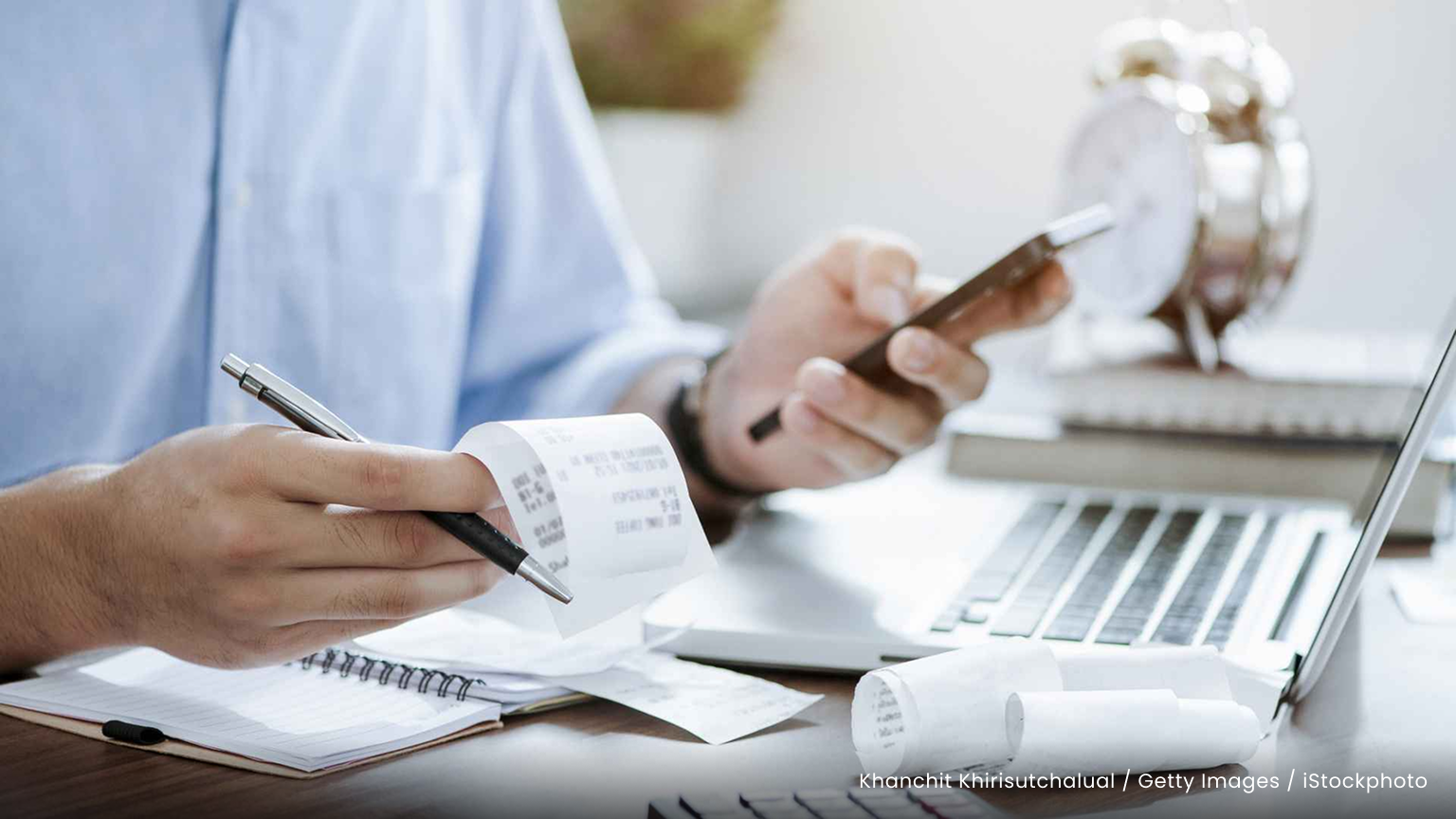Dave Ramsey: 5 Ways Discipline Can Help Fix Your Debt Problems

Getting out of debt can be a tremendous challenge. High interest rates mean you’ll need to make more than your minimum payments if you want to pay down the balance, and it’s easy to feel overwhelmed or like you’ll never get out of debt.
If you’re in debt, you’re not alone. According to Experian, Americans averaged $6,730 in credit card debt, $24,297 in auto loan debt and $35,208 in student loan debt in 2024. Financial influencer Dave Ramsey advocates for using discipline to help fix your debt problems, and here are five ways that you can get started, according to a July 2025 episode of The Ramsey Show.
Check Out: Essential Dos and Don’ts for Using Credit Cards Wisely
Read Next: Ways To Elevate Your Summer Travel Adventures

400+ Credit Cards
Analyzed independently across 50+ data points in 30+ product categories

Reviewed
By a team of credit card experts with an average of 9+ years of experience

Trusted by
More than one million monthly readers seeking unbiased credit card guidance
CardCritics™ editorial team is dedicated to providing unbiased credit card reviews, advice and comprehensive comparisons. Our team of credit card experts uses rigorous data-driven methodologies to evaluate every card feature, fee structure and rewards program. In most instances, our experts are longtime members or holders of the very programs and cards they review, so they have firsthand experience maximizing them. We maintain complete editorial independence — our ratings and recommendations are never influenced by advertiser relationships or affiliate partnerships. You can learn more about our editorial standards, transparent review process and how we make money to understand how we help you make informed financial decisions.
Build an Emergency Fund
Ramsey created a series of “Baby Steps” to guide you through the process of getting out of debt. The first step is to create a $1,000 emergency fund. The emergency fund can help you avoid having to take out additional debt to cover emergency expenses, such as if your car breaks down or your home’s heating and cooling system needs to be repaired.
During the July 28 episode of The Ramsey Show, a caller wanted to know if he could put down deposits for an upcoming honeymoon to the Caribbean while still saving for an emergency fund. Co-host Rachel Cruze explained that even when it comes to significant life events like a honeymoon, it’s important to stay disciplined. “I would want to go somewhere, but also only having $1,000 in the bank and going to the Caribbean makes me nervous,” said Cruz. “I would want maybe to get away to a degree, then build up some of that emergency fund, then take a one-year anniversary trip.”
Create a Budget
Establishing a budget and then having the discipline to stick to it can help you to not only build up your emergency fund, but is also essential in finding and delegating the money needed to pay down your debt. Create a budget that helps you track where every dollar of your income goes. Once you have all of your income and spending documented, you can identify areas where you’re overspending or where you can afford to cut spending.
For example, you might find that multiple subscription services are eating up a large portion of your monthly budget, or that you’re eating out frequently and could save by cooking at home. Budgeting makes you aware of these habits, plus it helps you prevent splurges that can eat into the money you have for your debt payments.
Live Below Your Means
Living below your means will help you save money for your debt payments, but it takes discipline and can involve some hard decisions. For example, Ramsey recommends that you spend no more than 25% of your income on your mortgage, and a caller asked about additional details on that rule.
“That includes your taxes, fees, HOA costs, everything,” explained co-host Jade Warshaw. She also explained that the figure should be based off of what you take home after taxes. “Don’t include things like investing and insurance,” said Warshaw.
For example, if you take home $8,000 per month after taxes, then your mortgage, property taxes, fees and HOA costs should be no more than $2,000 per month. Sticking to that 25% rule can help keep your housing costs manageable.
Living below your means takes on other forms, too. It might mean buying a used vehicle instead of a new one, or buying a more basic cell phone and plan until you’re able to pay off debt and have more room in your budget for other expenses.
Increase Your Income
Ramsey also emphasizes the importance of increasing your income, especially when you’re dedicated to paying down debts. Consider getting a second job, doing gig work like driving for Uber, working overtime and selling off unused items. The more you can increase your income, the faster you will be able to pay off your debts.
Use the Debt Snowball Method
The debt snowball method is central to Ramsey’s teachings. When you follow this method, you’ll compare all of your debts to identify which is smallest. Then, you’ll make minimum payments on all of your debts while putting all of your extra money toward paying off the smallest debt.
Once you’ve paid off the smallest debt, you’ll repeat the process, focusing on the next-smallest debt. Since you’ll have paid off one debt, you’ll be able to take the money you were putting toward that account’s monthly payments and use it to pay down the second debt.
As you pay off each debt, you can see the progress you’re making, which can help keep you motivated and determined to pay off the next debt. Plus, you’ll have more and more money freed up by paying down the different accounts, creating a snowball effect that can help you tackle larger debts.
Ramsey offers a free debt snowball calculator that can help you predict how quickly you’ll be able to pay down each of your debts.
Stay Focused
Paying off debt requires determination and focus, and you’ll inevitably be tempted to spend money on other things, like a weekend trip away or a must-have item you spot on sale. It’s during these times that you need to stay focused and remember to stick to your budget, since every extra expense will limit what you can put toward your debts. Ramsey’s advice, especially when it comes to the debt snowball, can help you feel empowered as you start to see the progress you’re making.
If you’re highly disciplined, you can make steady progress toward eventually becoming debt-free. Then, once you’re out of debt, you’ll need the discipline to save up for large purchases so you don’t find yourself overwhelmed with debt payments again.
More From CardCritics™












